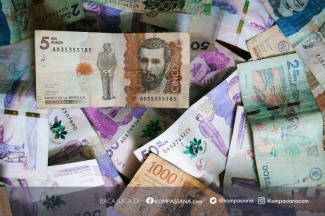The Financial Services Authority (OJK) reports that the spread of sharia banking is still around 5% of total bank assets nationally. Meanwhile, the number of Islamic bank customers is currently under 10 million customers. The number of Sharia Commercial Bank (BUS) industries is recorded at 12 banks, the number of Sharia Business Units (UUS) is 22 banks, BPRS are 163 banks, and the office network is 2,939. also, total assets (specifically BUS and UUS) amounted to Rp261.927 trillion, financing amounted to Rp198,376 trillion, and Islamic banking deposits were Rp209,644 trillion. From these data, it does not demand the possibility that Islamic banking is very likely to continue to be productive and more existent in Indonesia. And considering also that the majority of Indonesian people are Muslim, the existence of Islamic banking can be further enhanced.
In its development, Islamic banking still faces many obstacles. This causes the Islamic banks are still not stable in developing themselves. The first is a regulatory problem. Where in the regulation of sharia banking, it takes aside from the government in the form of equality of policy. Until now the equality of the policy was still lacking. Second, human resources (HR), the desire to develop Islamic banking quickly, and progress are not balanced by the readiness and the adequate number of human resources, this often makes problems in developing Islamic banks.
Third, marketing, although sharia banking products are the same as conventional banking products, sharia banking marketing is still far behind, if you want to be in line with conventional banking in marketing, sharia banking products must be able to be sold in conventional banking so consumers in all banks can have whether you want sharia or conventional banking products. Fourth is IT technology, weak IT technology owned by Islamic banking makes access to the public to have Islamic banking products also minimal. OJK's policy with financial inclusion is a strategy so that people can easily access Islamic banks, but without the support of great IT technology investments, it is also difficult for Islamic banks to compete in the market.
Of the four problems, the main key to the development of Islamic banking is socialization. Sufficiently acknowledged so far in Islamic banking socialization has been done a lot by Islamic mass organizations, institutions, and Islamic economic activists but it has not been maximized. Therefore, a special strategy is needed so that in the minds of the Indonesian people easily touched by Islamic banking or the Islamic financial industry.
Learn with what the preachers have done in bringing about the religion of Islam such as the famous Wali Songo. It turns out that the cultural aspect is an easy transformation in bringing about Islam in the archipelago. From this experience, the paradigm of dealing with sharia economics or sharia banking in the cultural sphere as the archipelago economy is very important and needs to be tried. Especially in the sociology of Indonesian society so far the term "profit-sharing" which has made the basis of sharia economic practice is something familiar. Especially for Javanese (Paron), West Java (Maro), Bali (Subak), West Sumatra (Padang restaurant business), etc. So the term revenue sharing has become an economic practice of the people of Indonesia, this is because the concept of revenue sharing has a sense of justice and welfare.
From this understanding, it is appropriate to socialize sharia banking from a cultural perspective because actually in sharia banking agreements such as Musyarakah, Mudharabah, Ijarah, Rahn, etc. are profit-sharing systems that need to be conveyed to the public in light and easy to understand language. Thus the understanding of the community with sharia banking or sharia economics is not just the word "sharia" which refers to ritual worship alone but an economic concept that has transparent, fair, and ethical ethics. This spirit must be had so that Islamic banking is always in the hearts of Indonesian people and making a movement to ground Islamic banking.
Baca konten-konten menarik Kompasiana langsung dari smartphone kamu. Follow channel WhatsApp Kompasiana sekarang di sini: https://whatsapp.com/channel/0029VaYjYaL4Spk7WflFYJ2H
